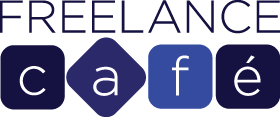Wish-I-could-be-there environmental journo training program with Poynter and the SEJ. Details below.
DATE: Nov. 3, 2014
APPLY BY: Oct 13, 2014
LOCATION:
Poynter Institute, 801 3rd Street South, St. Petersburg, Florida
Making Science Storytelling Engaging and Accurate
This is a one-day intensive workshop that will help science and environmental journalists, bloggers and students produce engaging and informative content.
With increasing demand to produce compelling science stories, journalists are also faced with entertainment successes, such as "Shark Week" and "Sharknado," that can confuse scientific fact and fiction. As the need for science stories continues to grow, it has left the American public more misinformed about science than ever.
Join us for a comprehensive day of learning how to pitch, investigate and

Kelly McBride
Vice President
of Academic Programs
Poynter Institute
craft compelling science-based stories in a competitive media landscape to accurately inform the public while keeping them engaged.
You'll learn how to:
- breathe excitement into your stories
- pitch to editors
- tap into research tools that make data accessible
- begin an investigation into an individual or organization
The day's schedule: (subject to change)
9:00 a.m. – 9:15 a.m. ~ Welcome

Jennifer BogoExecutive Editor, Popular Science
9:15 a.m. – 10:30 a.m. ~ Session 1, The Pitch with
Jennifer Bogo
Whether you are a freelance writer pitching various editors, or a staff writer pitching your boss, your pitch must be on target. In this session faculty will walk the workshop audience through the various methods for developing a story ideaand sounding it out to editors.

Angela Posada-Swafford
Freelance Science and Exploration Writer
10:45a.m. – 12:00 p.m. ~ Session 2, Getting it Right with Angela Posada-Swafford
There's so much to get wrong. And it's so difficult to find the right sources to provide the foundation for the best information. In this session, we will describe the methods for judging an expert's appropriateness for contributing to a story, translating scientific jargon into the vernacular and fact-checking the work before publication.
12:00 p.m. – 1:00 p.m. ~ Lunch
1:00 p.m. – 2:15 p.m. ~ Session 3, Longform Science Journalism with
Angela Posada-Swafford
A time-tried way to engage the public is by telling a good tale. But that requires the ability to organize and execute a complicated project, often within a short time frame. In this session, we will lay out the methods for organizing a long project from conception to publication.
2:30 p.m. – 3:45 p.m. ~ Session 4, Character-driven Stories with
Jennifer Bogo
Science is often complicated and inaccessible to the audience. One of the best ways to get readers over that hurdle is a character-driven story. In this session we will describe how reporters find characters and bring them to life in stories about science.
3:45 p.m. – 4:00 p.m. ~ Wrap-up
Who Will Benefit: Science and environmental journalists, bloggers, students and anyone interested in reporting about science and the environment.
Price: $79.00
(Lunch is included.)
Price for SEJ members and students: $59.00
Email SEJ HQ or call 215.884.8174 for the promo code.
APPLY BY: Oct 13, 2014
LOCATION:
Poynter Institute, 801 3rd Street South, St. Petersburg, Florida
With increasing demand to produce compelling science stories, journalists are also faced with entertainment successes, such as "Shark Week" and "Sharknado," that can confuse scientific fact and fiction. As the need for science stories continues to grow, it has left the American public more misinformed about science than ever.
Join us for a comprehensive day of learning how to pitch, investigate and
 |
| Kelly McBride
Vice President
of Academic Programs Poynter Institute |
craft compelling science-based stories in a competitive media landscape to accurately inform the public while keeping them engaged.
You'll learn how to:
- breathe excitement into your stories
- pitch to editors
- tap into research tools that make data accessible
- begin an investigation into an individual or organization
The day's schedule: (subject to change)
9:00 a.m. – 9:15 a.m. ~ Welcome
 |
| Jennifer BogoExecutive Editor, Popular Science |
9:15 a.m. – 10:30 a.m. ~ Session 1, The Pitch with
Jennifer Bogo
Whether you are a freelance writer pitching various editors, or a staff writer pitching your boss, your pitch must be on target. In this session faculty will walk the workshop audience through the various methods for developing a story ideaand sounding it out to editors.
 |
| Angela Posada-Swafford
Freelance Science and Exploration Writer
|
10:45a.m. – 12:00 p.m. ~ Session 2, Getting it Right with Angela Posada-Swafford
There's so much to get wrong. And it's so difficult to find the right sources to provide the foundation for the best information. In this session, we will describe the methods for judging an expert's appropriateness for contributing to a story, translating scientific jargon into the vernacular and fact-checking the work before publication.
12:00 p.m. – 1:00 p.m. ~ Lunch
Angela Posada-Swafford
A time-tried way to engage the public is by telling a good tale. But that requires the ability to organize and execute a complicated project, often within a short time frame. In this session, we will lay out the methods for organizing a long project from conception to publication.
2:30 p.m. – 3:45 p.m. ~ Session 4, Character-driven Stories with
Jennifer Bogo
Science is often complicated and inaccessible to the audience. One of the best ways to get readers over that hurdle is a character-driven story. In this session we will describe how reporters find characters and bring them to life in stories about science.
3:45 p.m. – 4:00 p.m. ~ Wrap-up
Who Will Benefit: Science and environmental journalists, bloggers, students and anyone interested in reporting about science and the environment.
Price: $79.00
(Lunch is included.)
Email SEJ HQ or call 215.884.8174 for the promo code.
